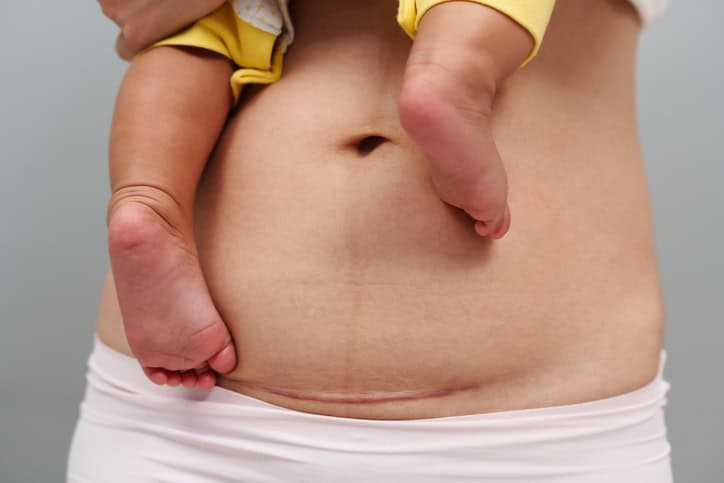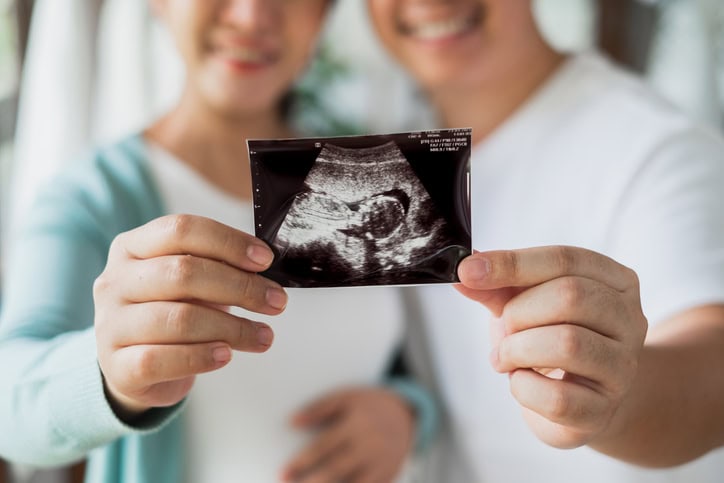In this article:
- Your 30s might be quietly working against your fertility, and you may not even know it.
- Already have a child? Here’s why baby #2 might not come so easy.
- The silent struggle of secondary infertility and what you can do about it.
Having one child doesn’t always mean the next will come easily.

More and more couples are discovering just how tough it can be to conceive again, especially in their 30s. To understand why, we speak to Dr Hoo Mei Lin, fertility specialist at Sunway Fertility Centre, who sheds light on the often overlooked struggle of secondary infertility – and what you can do about it.
The Changing Fertility Landscape in Your 30s
Your 30s are a season of growth and meaningful responsibilities spent nurturing your career, raising little ones and supporting your parents. While this chapter can be fulfilling, it can also bring emotional and physical stress that may quietly affect fertility.

“Fertility starts to decline in your 30s, especially after 35,” explains Dr Hoo, with changes seen in both egg and sperm quality. “The ageing ovary, environmental stress, and general body changes can all affect hormone levels.”
As we age, our bodies undergo subtle hormonal changes. These shifts might show up as irregular periods or other menstrual changes, which could signal underlying issues. Tracking your cycle can offer helpful insights, while men might benefit from a semen analysis to check sperm health.
Your Lifestyle Matters More Than You Think

Busy lifestyles often lead to neglecting our own health, and our relationships.
“We forget to nurture the husband-wife connection because we’re too busy being mum and dad,” Dr Hoo points out.
She emphasises the importance of “me-time” and “we-time,” in addition to maintaining a healthy diet, getting enough sleep, exercising regularly, and managing stress.
Medical Conditions That May Interfere

Conditions like endometriosis, fibroids, or PCOS can become more pronounced with age and may interfere with fertility.
“Endometriosis, is a progressive disease and if left unchecked can result in scarring of the pelvic organs, blocked Fallopian tubes and infertility,” informs Dr Hoo.
Weight gain or changes in fat distribution due to a slower metabolism can also impact ovulation, pregnancy outcomes, and sperm quality. If you’re in your 30s and struggling to conceive, it might be time to visit a fertility specialist, especially if:
You have irregular or painful periods
You have pre-existing medical conditions
You’ve had complications in a previous pregnancy
The Emotional Aspects of Trying Again

Trying to conceive again after already having a child can bring about mixed emotions and have a deep emotional impact on families.
“There is always the worry or anxiety that time is running out, as well as regret or guilt about delaying child-bearing if conception is taking longer than expected,” Dr Hoo shares.
She encourages couples not to shoulder these emotions alone. “Seek out support from a counsellor, psychologist, GP or fertility specialist. Even writing your feelings down can help.”
What Is Secondary Infertility?
Secondary infertility is defined as the inability to get pregnant or carry a pregnancy to term after already having one or more children. According to Dr Hoo, these are some of the most common medical causes of secondary infertility that couples in their 30s should be aware of:
| Ageing, causing a reduction in quality and quantity of eggs and/or sperm. | Genital infection | Complications from previous pregnancies |
If you’ve been trying for more than six months without success, it could be time to seek treatment options like IVF (in-vitro fertilisation). However, earlier consultations are advised if there are known health concerns such as:
- irregular or painful periods;
- existing medical problems such as diabetes, hypertension, thyroid disorders;
- complications in the previous pregnancy such as gestational diabetes, complicated labour or premature delivery;
- inability to have sexual intercourse; or
- erection and/or ejaculatory issues.
Things to Note:
- The Role of Stress

Stress can have a surprisingly strong effect on fertility.
“When you’re stressed, your body enters ‘fight or flight’ mode,” Dr Hoo explains.
This biological response can suppress ovulation in women, while men may experience a drop in testosterone levels, which can lead to reduced libido and impact sperm quality and function. In short, your body may decide it’s not an ideal time to bring a baby into the world.
- Complications from Previous Pregnancies
If your previous delivery involved a C-section or other complications, it might affect your ability to conceive again. One concern is a poorly healed C-section scar, which can create a pocket in the uterus called an isthmocele. This can lead to abnormal bleeding, pain, and difficulties getting pregnant.

Dr Hoo advises a pre-conception check-up with your doctor to review your medical history and make necessary preparations.
“For example, if you have had a premature delivery, it is important to screen for infections, monitor cervical length, discuss need for early interventions in pregnancy such as cervical cerclage and progesterone support”, cautions Dr Hoo.
How Secondary Infertility Treatment Differs

One of the biggest challenges with secondary infertility is the assumption that conceiving again should be easy. “People often think, ‘We’ve done it before, why not now?’” says Dr Hoo. However, both partners need a fresh evaluation to understand what’s changed physically, emotionally, or medically – not only to determine that they can conceive, but whether a pregnancy can be carried safely.
In some cases, couples may not be equally ready for another child, which can create strain. “Couples should be encouraged to have an open discussion about the importance of expanding their family,” Dr Hoo stresses. “Especially if treatments are needed, as these decisions may impact existing children in the family.”
You’re Not Alone
Fertility in your 30s can be a different experience compared to your 20s, even if you’ve successfully had a child before. From lifestyle habits, to hormonal changes and emotional stressors, many factors come into play. As Dr Hoo reminds us, knowledge and support are key. If you’re struggling with secondary infertility, don’t hesitate to reach out to your support systems, because you’re not alone on this journey.
This is a sponsored post by Sunway Fertility Centre.
Dr Hoo Mei Lin is a Consultant Obstetrician & Gynaecologist and Fertility Specialist at Sunway Fertility Centre. Her areas of interest include IVF and infertility, wherein she provides a full range of fertility treatments, and treats gynaecological disorders such as endometriosis, fibroids, and PCOS.
Sunway Fertility Centre has a skilled medical and clinical team backed by top-notch facilities which deliver optimised treatment outcomes. Call Sunway Fertility Centre at Sunway Medical Centre (Sunway City) at +6019-281 2337 for enquiries or to schedule an appointment with their fertility specialists.
Follow them on Instagram, YouTube, TikTok and Facebook for more updates.










